Welcome to the latest edition of The Offramp! Each month, rock writer Corbin Reiff will highlight some of the most dynamic artists and projects going on in music today. Throw on the turn signal, crank up the stereo and enjoy the ride!
There’s an old quote about Alexander the Great that’s floated around for centuries. It’s been attributed to many – Plutarch, John Calvin — but you may have heard it from Hans Gruber, the villain from the first Die Hard film.
“When Alexander saw the breadth of his domain, he wept for there were no more worlds to conquer.”
At a certain point, when you’ve been doing something for a long enough time, you simply run out of goals worth achieving. You’ve received all the critical plaudits. You’ve attended the award shows. You’ve performed in front of tens of thousands of people, hanging on to your every word. You become Alexander the Great, staring out at a vast empire beneath your feet, pining for new challenges that simply don’t exist.
Now, I’m not out here directly comparing Spoon frontman Britt Daniel to one of the greatest conquerors the world has ever known – Alexander could never write something as catchy as “The Way We Get By” – but when I asked him recently about his plans for the follow-up to their fantastically raw, rock record Lucifer on the Sofa, he had an unexpected answer.
“Is there going to be another Spoon record? I don’t know.”
Spoon have reigned over the last two decades as one the most consistently great rock bands that America has. Their catalog is a perfect blend of visceral, swank-riddled rock songs, streaked with experimental touches, and hummable pop melodies. Their 10th studio album Lucifer on the Sofa might just be their best yet, but that’s also because seemingly every new Spoon album might just be their best yet.
How many more worlds are left for Spoon to conquer? Only Britt Daniel truly knows. I recently hopped on a call with Spoon’s singer to talk about his recent return to Austin, Texas, his best driving album recommendations, and the uncertain future of Spoon.
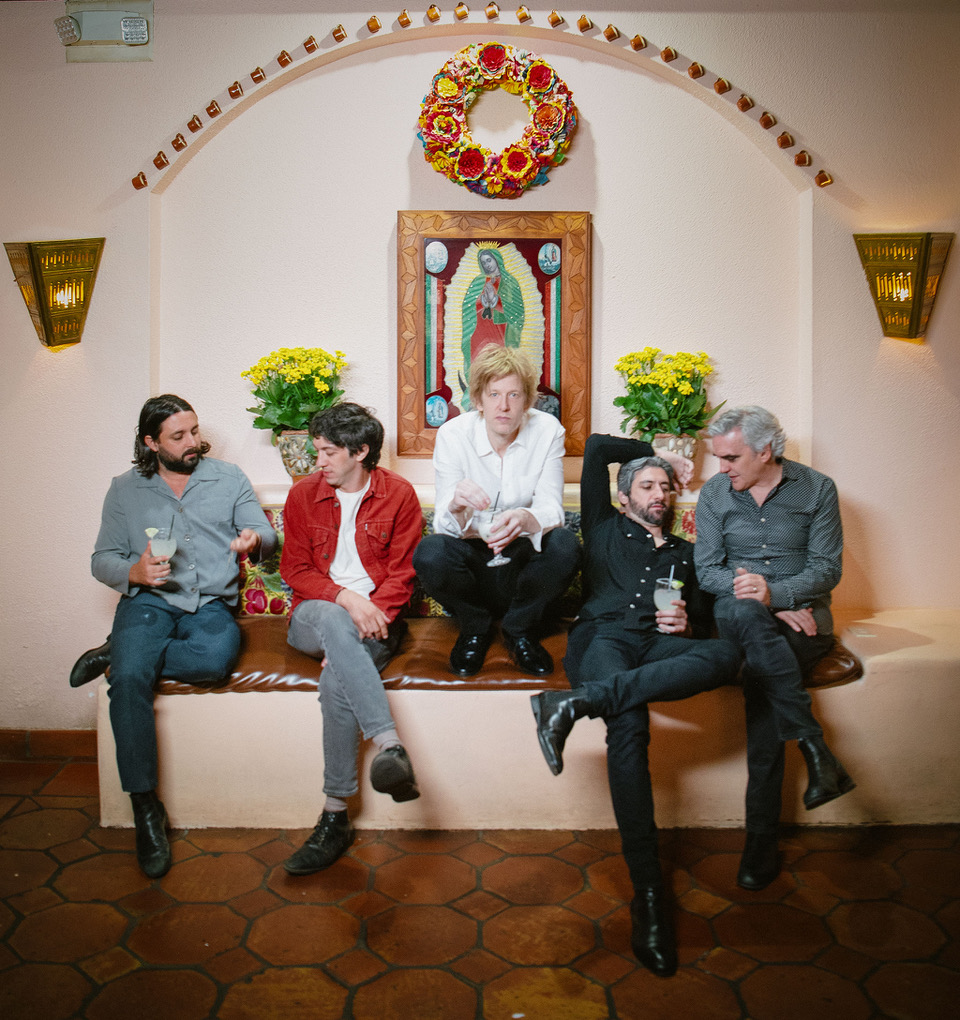
SPIN: So, Lucifer on the Sofa has been out for a little bit now. Are you happy with the reception it’s received?
Britt Daniel: Yeah, I couldn’t have really asked for a better reception. Either people are just very, very nice, or they seem to really like it.
Spoon has a reputation for maintaining a high standard of quality with each new record. Do you ever feel any kind of pressure to kind of maintain that standard people have kind of come to expect from you and your band?
I mean, I do feel some pressure, but it’s self-imposed. When we’re making a record, I’m never thinking I don’t want to disappoint someone other than myself. I just want to make it feel good to us. We just try to make sure that we are not repeating ourselves and that everybody that’s working on it feels good about it. And if we can check those boxes, then we’re happy. We never really think about it until the record’s done. Then we start thinking, “Oh, well, okay. It’d be great if people did like it.” But it’s more of an afterthought.
Can you juxtapose the process of how this record was made versus how you went about creating the previous two albums Hot Thoughts and They Want My Soul. Did you have many conscious ideas going into this one about how you wanted tackle Lucifer on the Sofa?
Yeah, we started talking about it while we were touring. We toured more on Hot Thoughts than we ever had on any record.
The way we were playing was just better than we ever played before. We really were kind of recognizing the strengths of this particular group of guys. So, we said, “Instead of making a record where it’s so produced and a studio album that’s sort of pieced together, why don’t we just really lean into what we’re doing so well, which is just playing together, and make a record that’s all about that.” That’s about the way that it sounds when a band that plays well together is playing together in a room. That was the general blueprint: rock and roll record. And we just kept saying that. I wasn’t really sure what rock and roll meant other than band playing in a room. And we just kind of leaned into that.
I’m a huge fan of live albums. I really love the way that songs become different things and exist in different forms away from the studio after they’ve been kind of road-worn a little bit. You get to play with a little bit and new ideas come to life. I know you wanted to kind of have a live feel to this record. How did you go about making that happen?
It’s funny, I used to just absolutely hate live records, but I think it was because I had only heard bad ones. And then I heard James Brown Live at the Apollo. And I got a lot of Prince bootleg records, and you listen to what they’re doing in these live performances and how it differs from the record and it actually is a good thing. It can be a good thing.
What’s the secret to making a band sound live on record without actually recording it just specifically live?
Well, you record most of it live. You could do that. You are actually playing together when it’s being recorded. That’s a big step. We didn’t do that too much on Hot Thoughts. But I think also it’s just the way that you hash out things before you get in there and figure out what the parts are going to be. Now that everyone records digitally, you have limitless tracks. It feels like a good thing when you’re in there in the studio, because you can just keep trying and keep trying and keep trying and put down another track and another track and save everything. But all you’re really doing is delaying the inevitable, which is eventually you have to decide what this part’s going to be. Why not hash it out ahead of time, and then it’s just more of a live thing once you do it that way. The band members are playing off each other.
How long did that process take of just playing around with songs, honing things before you kind of entered the studio and kind of laid everything down?
Well, I didn’t come up with all the songs at one time. We would work on maybe three in a row or maybe two. And we’d hash those out for, I don’t know, weeks. Sometimes we couldn’t get together because half this record was made in the pandemic. But yeah, I would say weeks or even months went into each song to just fucking around, playing cover songs, leaving town and not working on it for a bit. And then you come back to it. We just kind of took our time with it.
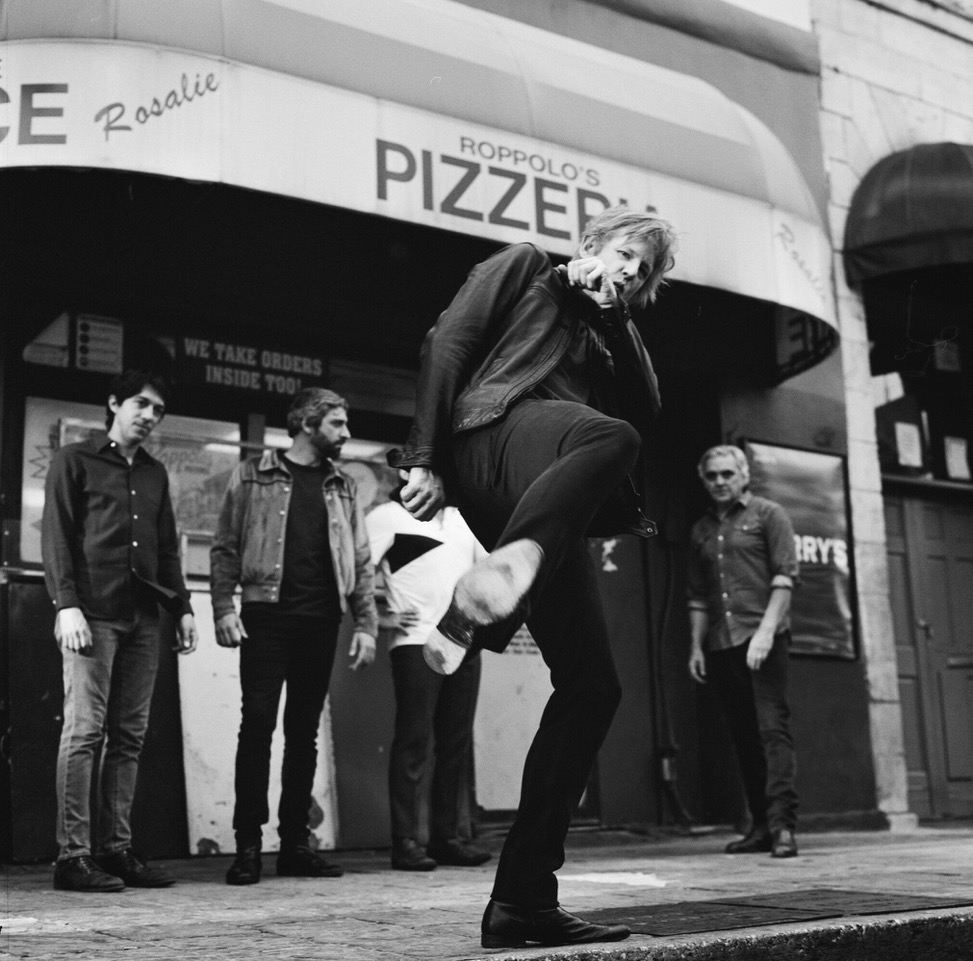
What kind of covers were you kind of experimenting around with?
The Stooges are always good to do. The Rolling Stones. I remember we played a Low song quite a bit. We almost covered that. And then, kind of out of the blue, we played this song “Held” [by Bill Callahan’s alter-ego Smog] that we hadn’t played since the 2000s. It used to be part of our set and we played that one for fun like we were playing all these other ones for fun. And that one kind of just stood out as, “Hey, maybe this isn’t just us warming up or getting in the mood. Maybe we could actually record this.”
I’ve always been kind of fascinated at the way geography and location kind of informs art or expression. You went back home to Austin and made this record. In what ways did Austin the town, and being back in your home environment influence the sound and the direction of the music you made?
Well, I mean, I think part of it might have just been the drive in. I spent a lot of time on the highway in 2020, because all of a sudden, nobody was flying anywhere. [Keyboardist] Alex [Fischel] and I drove in from California and then wrote a song that we kind of felt sounded like the highway. That was “The Hardest Cut.”In general, with Austin, it was just about wanting to be in a place where we could be around people, be around energy, be around live music and just have it be a little bit more about real life and having fun than the last couple records we made. We would go out and work at the studio for a bit, then drive down to Deep Betty Cabaret and have a drink and then take that energy back… For me, when I go see live music a lot, it sets me right. It makes me happy. And so, there’s something about that that just fed the energy of the record.
The road does wonders for songwriting, I suppose.
I’ve done a few like that. Yeah. That’s a good way.
Any come to mind?
Well, “Metal Detector,” I remember, I wrote as I was driving up I-35. And I remember writing the lyrics, at least, to “Lines in the Suit” as I was driving to Omaha from Austin once.
Wow.
Yeah. And then “The Hardest Cut” definitely had something to do with the road.
My favorite song on the record is, “The Devil and Mr. Jones.” I just love the vibe of that song. How did that one came together.
Yeah, that was a song that started out as a voice note from my friend, Andrew Cashin, who just sent me a little handheld recording of him playing acoustic guitar and whistling, and just whistling a melody. And sometimes that’s a good starting point, sometimes it isn’t, but I just got lucky with this one. And he sent that to me and I think later that day I sent him back the first demo that had some… I had been writing this poem or these lyrics about Mr. Jones, and I kind of had them going already and they just kind of fit in with his syllables that he’d come up with. And so, bam, it just happened really fast. But yeah, it was all due to him. If it wasn’t for him sending me that voice note, I don’t know what song number three would’ve been on the album.
Man. Isn’t that wild? Sometimes you force it, but sometimes just something drops in your lap and you go with it. It’s amazing how that works.
Yeah. And you just try to get enough of those things on your side as possible and try to make those happen. Will them to happen as much as you can.
No doubt. You mentioned that “Lucifer on the Sofa” was kind of birthed out of taking a lot of night walks around, around downtown Austin.
Mm-hmm.
I know for me during the early days of the pandemic, I wandered around downtown Seattle quite a lot while it was all abandoned and everything. It definitely had a ghostly vibe. How does that song feel to you now? Does it feel like a time capsule tied to that particular moment?
I guess it does, yeah. I haven’t listened to it in a second, but I should. That’s not one we’ve played live and I don’t know that we plan to, at least any time soon. I haven’t listened to it, but it has a unique place on the record in terms of the mood and the way that we recorded it and the sound of it, the whole thing. It’s so different, in fact, that we had this song going and I loved it and I thought it was timely and I thought it had great lyrics, but I wasn’t sure if it would fit onto this record, which was all about live band rock and roll. We went back and forth about it for maybe months. And finally, I just figured out if you put it at the end, maybe we can get away with it. And then it’s the last song that sort of sends you off into this other world.
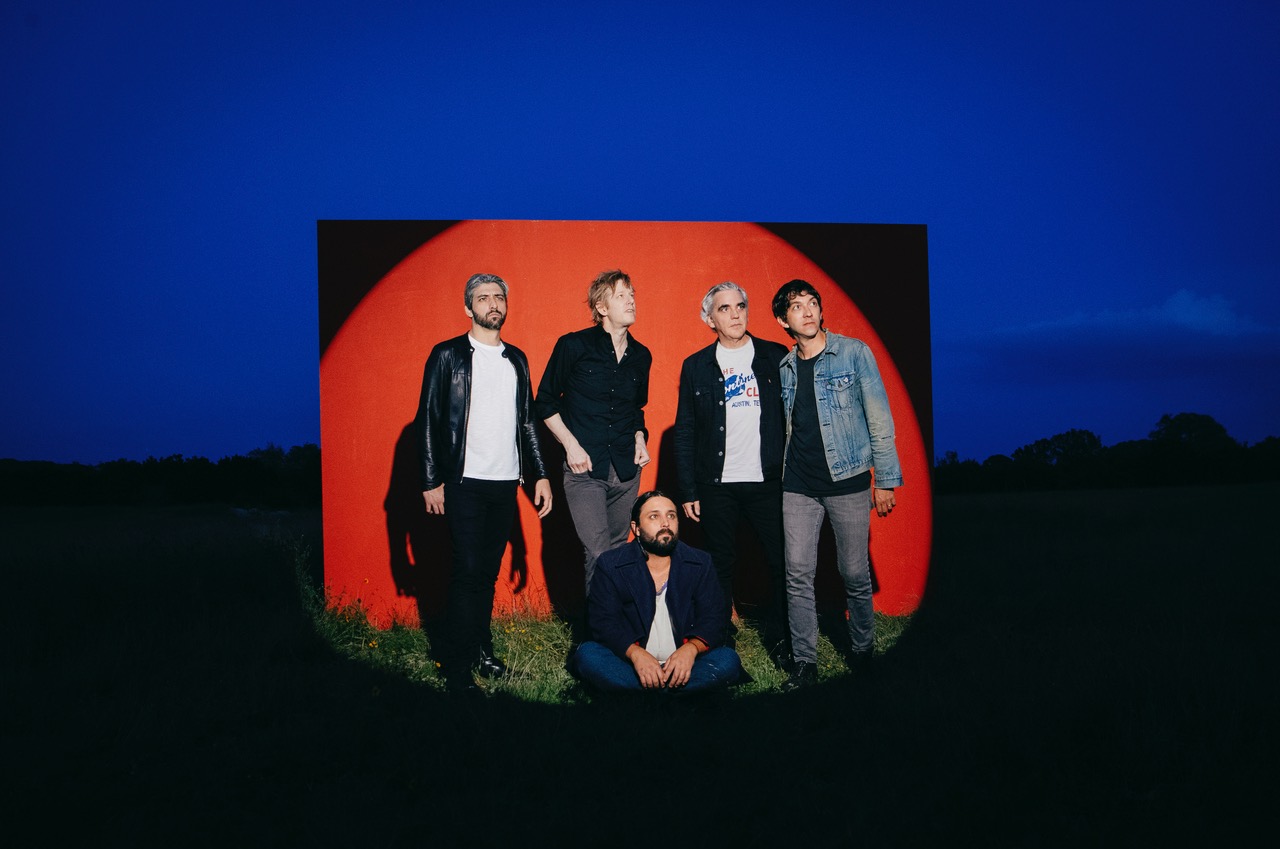
I love that idea. I also love the idea of it’s this outlier song, but it’s also the title track. It’s almost incongruous, but it works.
Yeah. Yeah. That is a big part of it, you’re right.
Do you have a centralized theory about how track listing should work? Do you play around with it a lot? Does it matter to you much?
It matters a lot, maybe more than…not more than it should, but it matters a lot, and we spend a lot of time on it. I don’t have a theory about how it should happen, other than I usually don’t want for us to blow it big too early. I remember in the ‘80s, or even in the ‘90s, there was a thing where the hit single was the first track on the record.
Right.
Prince could get away with that. He did it really well, of course, every song on Sign O’ the Times and Dirty Mind and Controversy; those were all fucking amazing songs so it’s hard to go wrong. But there were a lot of albums where it was just all about that energy right at the top. And I never liked that, I wanted it to be more of a build. It’s definitely about the experience. And we could have put “Astral Jacket” or “Satellite” or “Looser on the Sofa” at the top of the album, and you would have a totally different impression of what this album was about. The story of the album would be completely different.
What is the story of the album?
The story is there’s not enough great rock and roll records being made. And we decided we wanted to make one. That was our goal. And check it out, this is how we do it.
Is the goal you want to carry forward into the future with your next record? I’m assuming you’ve got to be thinking about your next steps.
I don’t know. Is there going to be another Spoon record? I don’t know.
Is there going to be another Spoon record after this?
I don’t know that. I usually wouldn’t have asked that question, but who knows? I don’t know. I could see us having a great time on tour in April and then saying, let’s write some more songs immediately. Let’s keep this train rolling. I could see doing any number of things though. Life is too short.
Life is too short, and especially right now with everything going on in the world. It’s a weird time to kind of exist and try to navigate the future.
Yes. That has particularly hit home over the last few years.
All right, one more question for you. What are some go-to, on the highway driving records that you return to all the time?
The Cult Electric. Willie and the Poor Boys by Creedence. Hot Rocks by The Rolling Stones, Aretha Now by Aretha Franklin. How’s that?
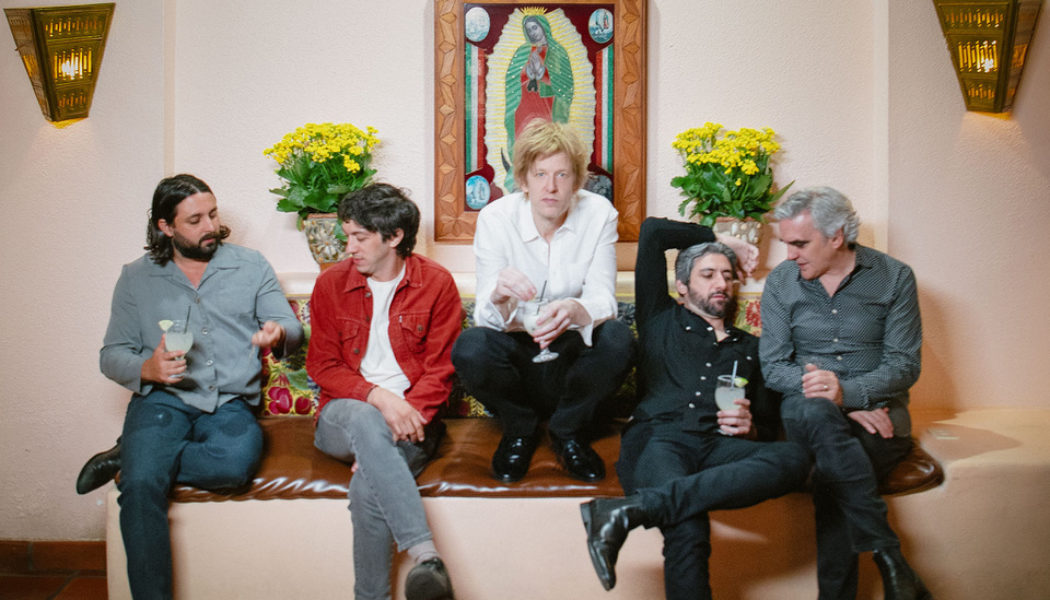

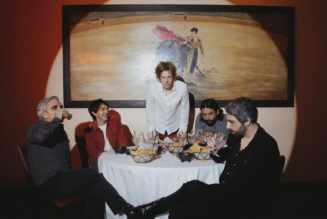
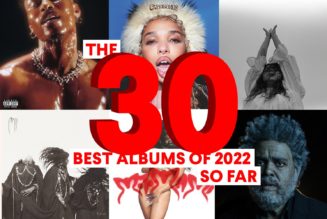
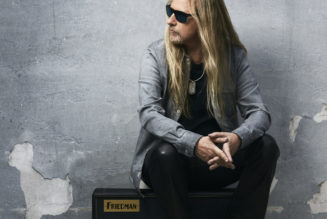
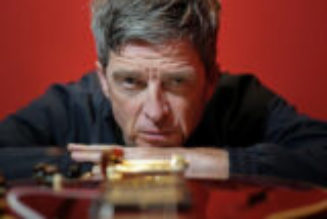

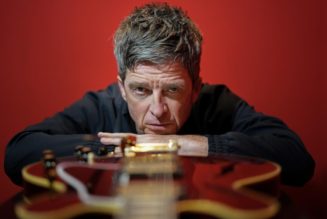
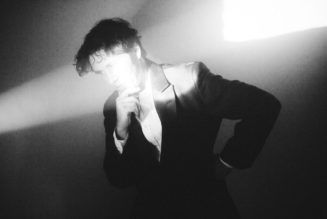
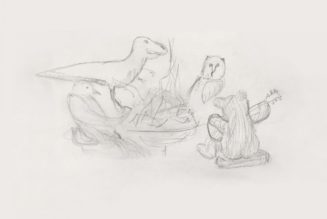
Tagged: spoon, The Offramp